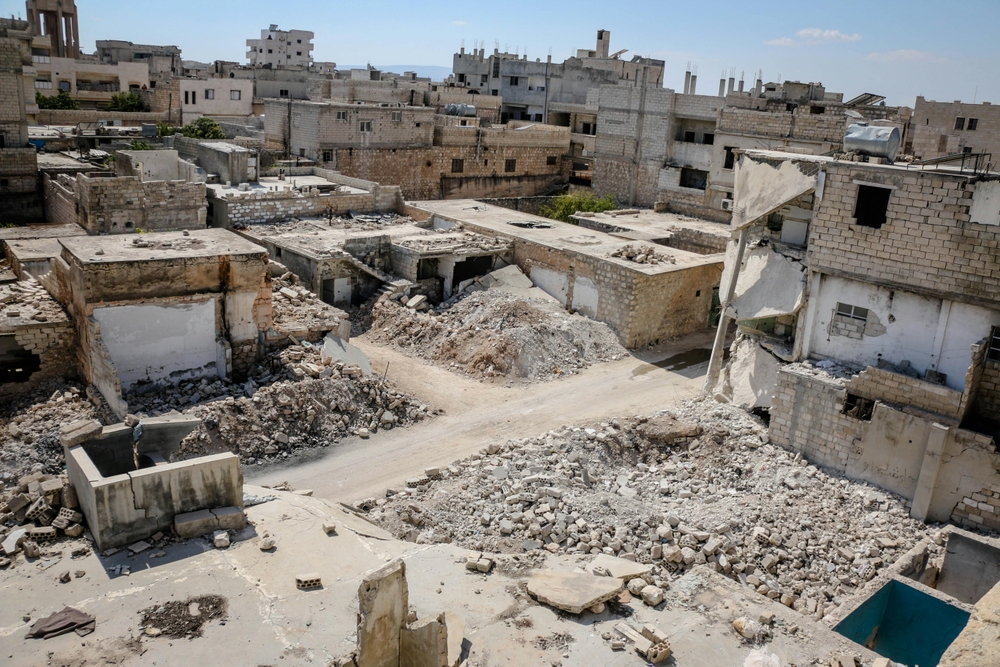Published
- 3 min read
The Geopolitical Ripple Effects of Assad’s Fall on the Middle East

The Sudden Shift in Syria’s Political Landscape
The fall of Bashar al-Assad’s regime marks a seismic shift in the Middle East’s geopolitical dynamics. Over 13 years of civil war and widespread suffering culminated in a rapid offensive by opposition forces that toppled a government long thought entrenched. The implications of this development reverberate across the region, shaking alliances, weakening entrenched powers, and creating new opportunities for both local governance and international diplomacy.
Iran’s Waning Influence in the Region
Iran’s influence in the region has suffered a devastating blow. The Assad regime was a cornerstone of Tehran’s strategy, facilitating the supply of weapons to Hezbollah and ensuring territorial continuity across the so-called “Shia Crescent.” With Assad’s removal, these logistics are critically disrupted, weakening Hezbollah and reducing Iran’s ability to project power into Lebanon and beyond.
Tehran must now recalibrate its strategy, potentially doubling down on other proxies like the Houthis in Yemen or shifting focus to rebuilding its direct military capabilities. This recalibration could also prompt accelerated nuclear development or renewed negotiations with Western powers.
Russia’s Middle Eastern Ambitions Derailed
Russia’s loss of its Syrian ally further diminishes its global influence. The naval and air bases in Syria, vital to Moscow’s Mediterranean strategy, face uncertain futures. While Russia retains strong ties with other regional players like Saudi Arabia and the UAE, its power projection capabilities in the Middle East have been significantly curtailed.
Should Syria’s opposition coalition fracture or chaos ensue, Russia may find opportunities to regain some influence by supporting specific factions. However, its broader regional credibility has taken a serious hit.
Turkey’s Ascendancy in the New Syria
Among the regional powers, Turkey emerges as a key player with significant leverage. By supporting opposition groups while negotiating with Assad’s backers, Ankara has positioned itself as a central figure in Syria’s reconstruction and stabilization. Turkey’s economic, military, and diplomatic resources will likely dominate the rebuilding process, ensuring continued goodwill among Syrians.
Moreover, Turkey’s role in managing refugee flows and balancing Kurdish factions gives it a unique influence over Syria’s trajectory, offering Ankara an opportunity to reshape the regional balance in its favor.
Opportunities and Challenges for the United States
The United States faces a critical juncture in shaping Syria’s future. Assad’s removal presents an opportunity to counter Iran’s influence and promote regional stability. However, Washington must act decisively to support the formation of an inclusive government, provide humanitarian aid, and ensure the return of millions of displaced Syrians.
Cooperation with Turkey, Israel, and Gulf states will be crucial in achieving these objectives. A united international effort could facilitate economic recovery and prevent Syria from becoming a breeding ground for extremism.
A Path to Inclusive Governance
The absence of Assad opens the door to a new era for Syria, but the journey will not be straightforward. The opposition coalition must navigate sectarian and ethnic divisions to create a government that represents Syria’s diverse population. Early indications of pluralistic discourse and calls for unity among opposition leaders are promising but require sustained international support.
The lessons of Libya’s post-Qaddafi chaos must guide efforts in Syria. Establishing a National Reconciliation Conference and delaying elections until foundational principles are agreed upon could foster long-term stability.
Conclusion: A Moment of Transformation
The fall of Assad’s regime is a turning point for Syria and the Middle East. While the challenges are immense, the opportunities for fostering regional stability and inclusive governance are equally significant. With concerted efforts from regional and international stakeholders, Syria’s transition could become a model for post-conflict reconstruction and reconciliation in the 21st century.
